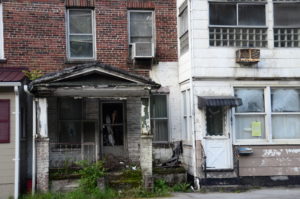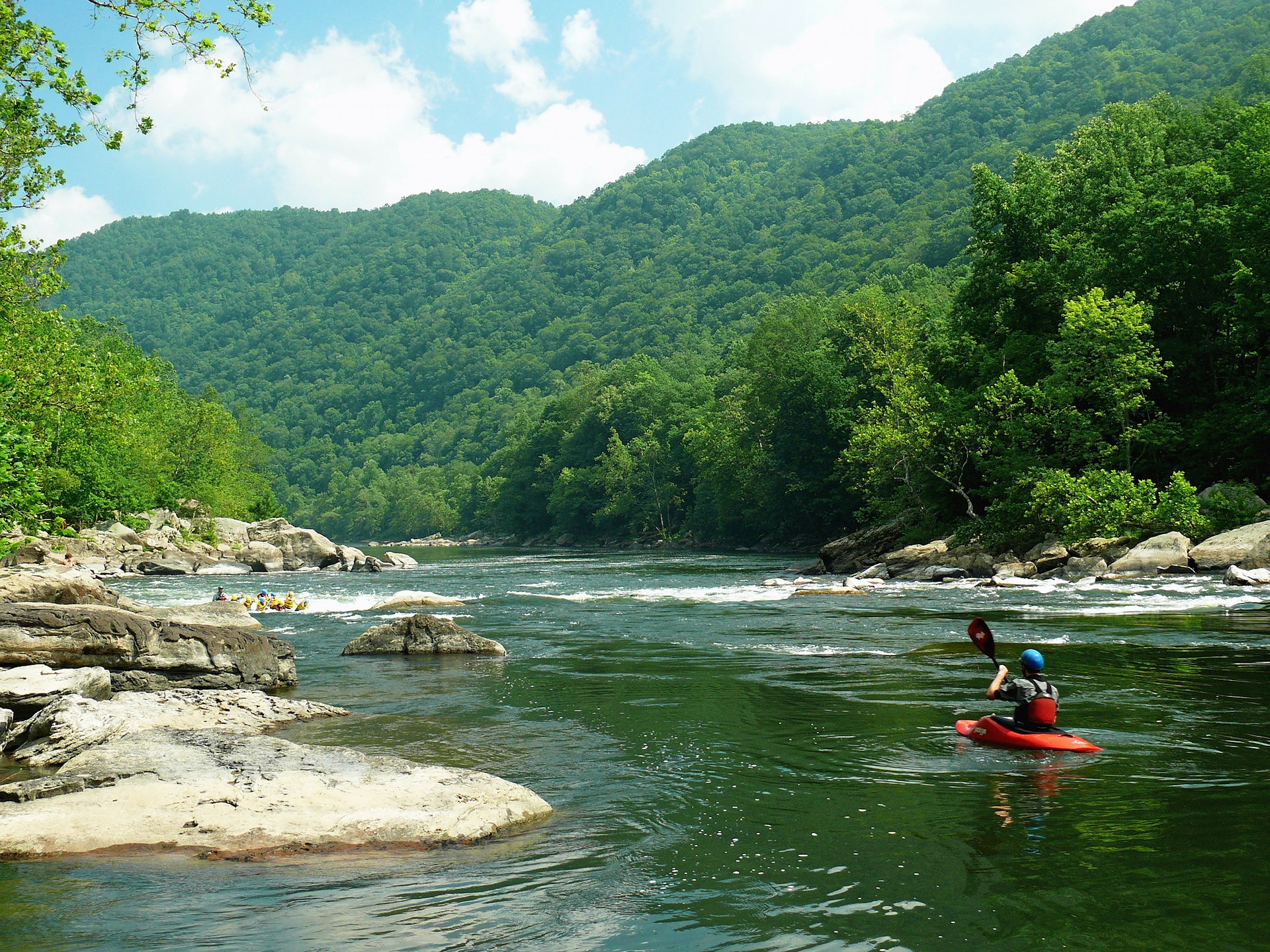Having worked in the State of West Virginia and driven the country roads there, it is easy for us to understand how John Denver would have referred to it as “almost heaven” in the song he made famous in the 1970s. The natural landscape, crowned by the Blue Ridge mountains rising above winding river gorges, can be breathtakingly beautiful. The “Mountaineers” who reside there are rightfully proud of their home state. We found them grateful and hospitable when we worked there in 2015 to bring Feeducation to seniors living with grandchildren and others in MacDowell County who relied on senior nutrition programs for their noon day meal.
As magnificent as the scenery was and as welcoming as the people were, it was clear to us that a number of West Virginia’s residents would not necessarily regard their State as “heavenly” when it comes to obtaining nutritious food. The same rugged terrain that makes that area of Appalachia spectacular to behold can be, and often is, a serious impediment – particularly for seniors – to having regular access to good nutrition. In addition to challenging typography, there is much widespread poverty in the region as well, due in large measure from the virtual collapse of the coal industry that for decades fueled the economy.  And those factors, taken together, make the congregate nutrition programs located in senior centers sprinkled across West Virginia all the more vital for the Mountaineer elders – 18.5 percent of them in 2015 (far above the national average of 14.7 percent)– who are threatened by hunger.
And those factors, taken together, make the congregate nutrition programs located in senior centers sprinkled across West Virginia all the more vital for the Mountaineer elders – 18.5 percent of them in 2015 (far above the national average of 14.7 percent)– who are threatened by hunger.
Commissioner of the West Virginia Bureau of Senior Services, Robert E. Roswall, knows that better than anyone. And he also knows that he has a trusted ally in NFESH when it comes to bringing innovative programs to fight that hunger into senior centers in the cities, towns and hollows where elders reside. Last month under a grant from Commissioner Roswall’s office, NFESH kicked off a year-long statewide What A Waste initiative in West Virginia. The project will be implemented in senior centers in five West Virginia counties across the state: Monongalia, Preston, Braxton, Kanawha, and Mingo. When se say across the state, we mean that literally. We’ll go from the city of Morgantown in a county to the north bordering on Maryland, to towns in two central counties (including the capital of Charleston), all the way to a southwestern one that is adjacent to both Kentucky and Virginia. It is a wide and geographically and economically diverse swath.
And that diversity illustrates what we know. There are seniors threatened by hunger in every community in this country. Here are four other facts that go hand-in-hand with that. Senior centers that furnish noon meals are vital lifelines for those individuals; those centers do not have the capacity to provide for all who need nutritious food; What A Waste can assist senior centers in improving the nutritional intake of the seniors they serve; and What A Waste can help senior centers improve efficiency and reduce waste so that they utilize existing resources to feed more seniors. That improves health and improves lives.
We are so delighted to announce that West Virginia has chosen to become the fifth among the fifty to implement a statewide What A Waste project. That’s why these days around the NFESH office we find ourselves singing “Take us ‘home’ country roads.”


